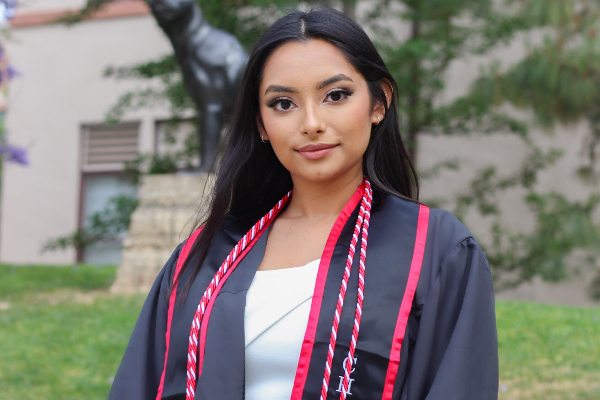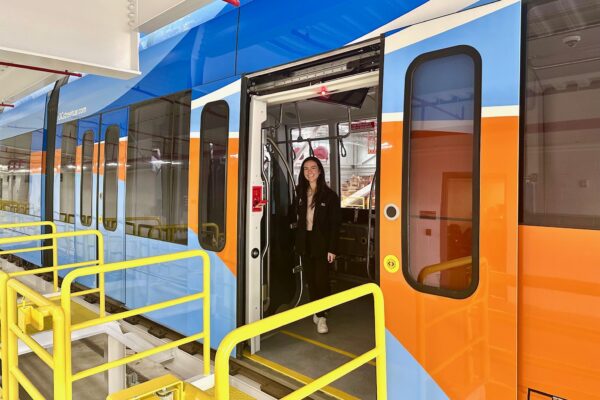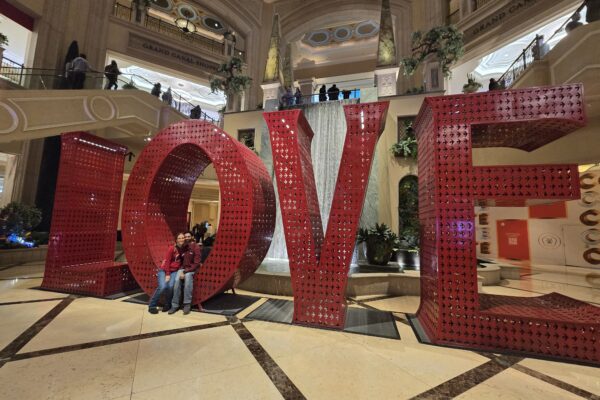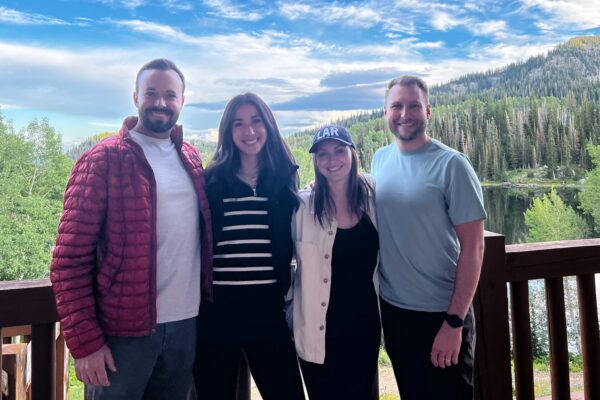As a Pakistani American, Rabia Asif ’22’s family and culture played a formative role in her interest in community service work. But a combination of meaningful classes at Chapman and volunteer work in the Orange community are what really galvanized her new worldview.
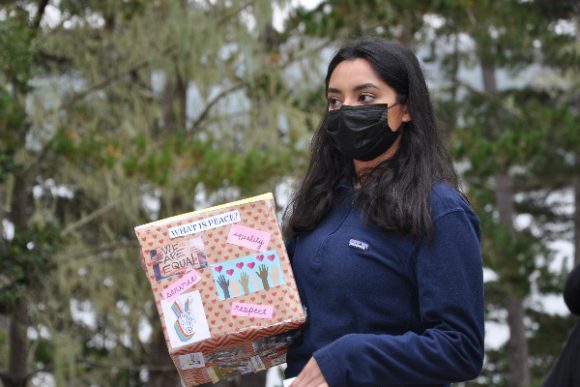
“I began service and volunteering work on the advice of career counselors to boost my application for medical school,” Asif explains.
But then something else took hold.
“Working with people and organizations that make a difference made me realize that a big reason I want to do medicine isn’t just for the science, but for the love of giving. I see now that I’ll gain more from the patients than they do from me.”
A health sciences major with a pre-med emphasis and a minor in Spanish, Asif volunteered with School on Wheels, a non-profit that provides 1:1 virtual tutoring for youth displaced from homes. She also served at the Lestonnac Local Free Clinic in Old Towne Orange, which provides free medical services to community members who don’t have insurance. While at Chapman, she also participated in the AMSA pre-med club and the Muslim Student Association.
“These volunteer experiences brought a new perspective into my life and is one of the reasons I applied to the Shinnyo-en Fellowship program,” she says.
The fellowship through the Shinnyo-en Foundation supports post-undergraduate Chapman University alumni interested in peacebuilding and service. Shinnyo-en fellows receive financial stipends to develop leadership and reflective skills to implement the foundation’s philosophy of peacebuilding and bring this to Chapman and local community organizations.
Asif found out about the fellowship program during a second formative experience during her time at Chapman.
“The sociology courses I took as a health sciences major really impacted my worldview. I was only interested in my STEM classes when I started. But these classes showed me the bigger issues in the world,” says Asif.
In particular, a medical sociology course taught by Assistant Professor Ashley Kranjac introduced her to the issue of health disparities.
“This combined my passion for medicine with inequity, so I could finally understand why certain individuals are more at risk for health conditions and how our environments affect health outcomes. This ignited my passion for medicine, not just the science, but as a way to make a difference,” she says.
Last year’s Shinnyo-en fellow, Shun Kato ’21, presented in one of those sociology classes.
“His presentation on his work with Higher Ground Youth and Family Services made me interested in applying,” she says.
Now a fellow herself, Asif is launching her own project at Higher Ground, an Anaheim organization whose mission is to provide mentorship and opportunity to at-risk and underserved youth. She will work at Higher Ground for the next year as she prepares to take the MCAT in preparation for applying to medical school.
“I’m implementing a literacy program into their after-school programming because we are finding lots of educational inequities among the kids. I’ve encountered sixth graders who don’t know how to read. This brings up bigger issues of social injustices in the education system,” Asif says.
“We are honored to have hosted a Shinnyo post-undergraduate fellow for five years,” says Julye Bidmead, Ph.D., director for the Center for Undergraduate Excellence and associate professor in the Department of Religious Studies. “The fellowship allows the fellow a year-long commitment to improving the lives of others through social justice and peacebuilding, as well as valuable job skills through their work at the Center for Undergraduate Excellence. Each fellow brings their something unique to the fellowship, and we look forward to Rabia’s successful partnership with Higher Ground.”
The Shinnyo-en Foundation is a philanthropic arm of the Shinnyo-en Buddhist Order. The Foundation was established to promote a more harmonious and peaceful world.
“Even though the foundation is founded upon Buddhist values, these are universal – peace, service, selflessness,” Asif says. “They say that there are many paths to peace. For me, that means that if each of us makes a unique contribution to the world then we can ultimately make it a better and more peaceful place.”
